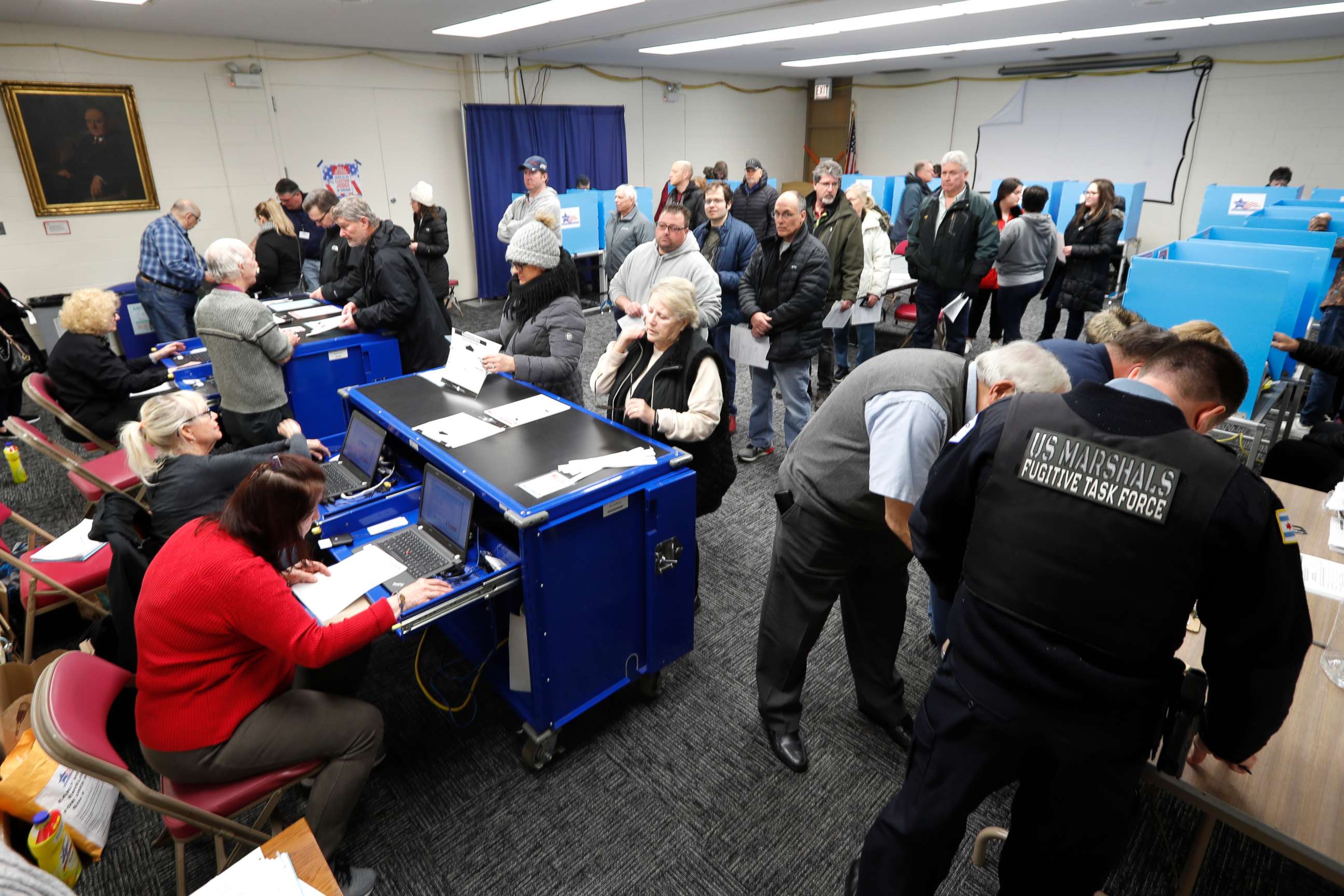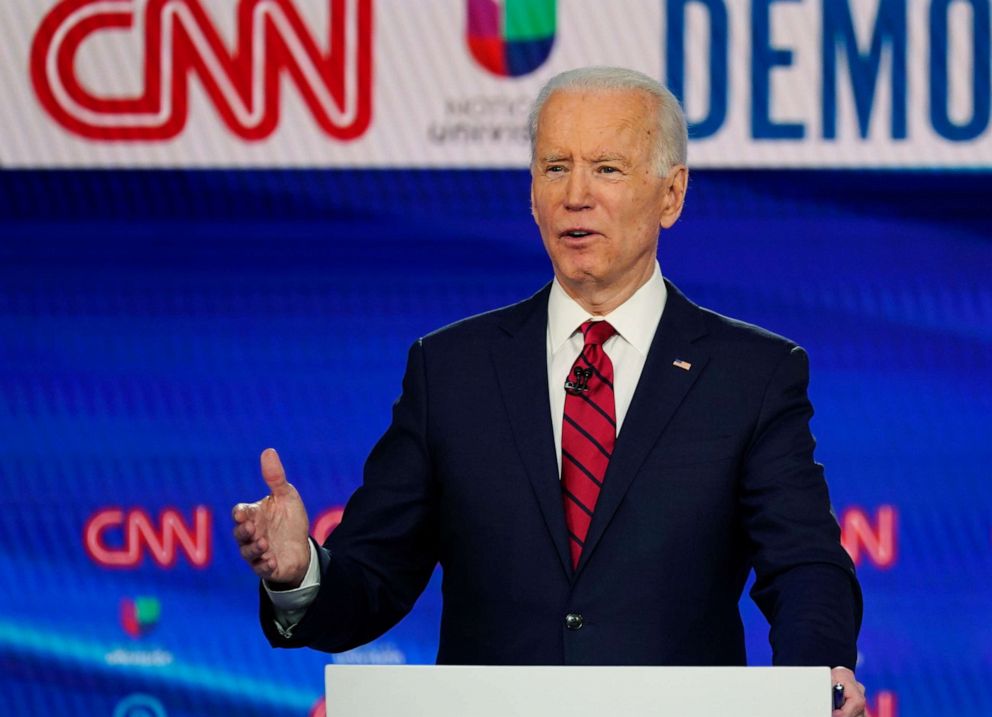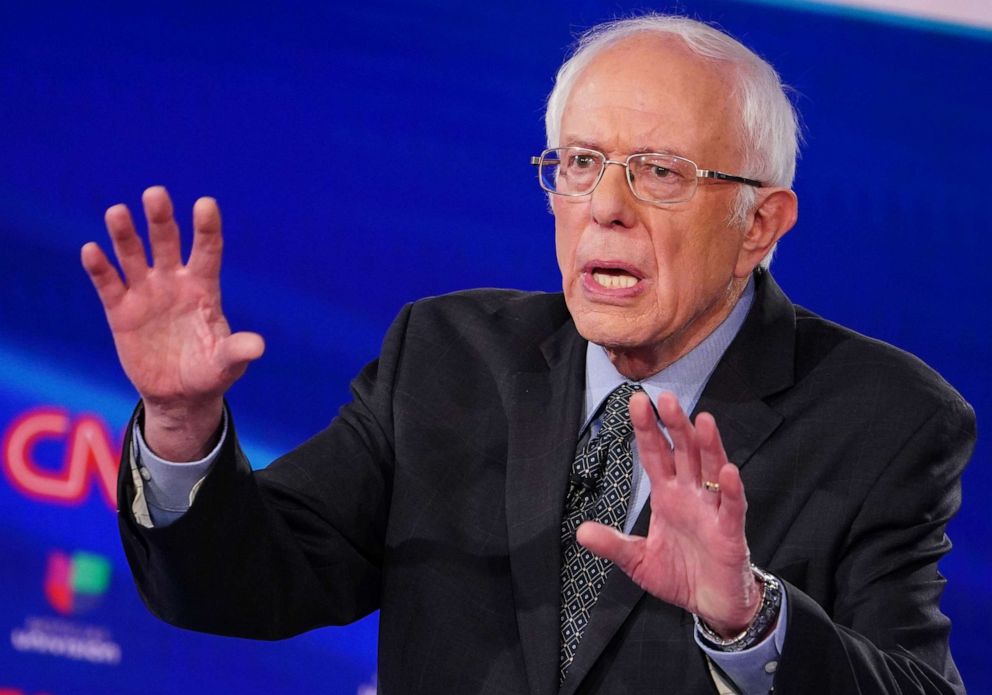Coronavirus pandemic upends elections as 3 states move forward with primaries
Ohio ordered poll sites to close after an effort to postpone the primary failed.
Voters in Arizona, Florida, Illinois and Ohio are living in a vastly different world than voters who headed to the polls a week ago were living in.
A day after six contests were held on March 10, the World Health Organization publicly characterized the novel coronavirus outbreak as a pandemic. Two days after that, on Friday, President Donald Trump declared a national emergency to respond to the crisis.
Three states -- Louisiana, Georgia and Kentucky -- have successfully postponed their presidential primaries, and the Puerto Rico government is in the process of doing the same for the Democratic side.
And voters in Ohio, a critical general election battleground that has 136 Democratic delegates at play this primary cycle, won't be casting ballots as planned Tuesday, with the governor announcing late in the evening that he and the director of the state's health department had issued an order to close the polls, citing a health emergency, after a judge blocked the state's effort to postpone the contest Monday.
The situation has significantly escalated in a short number of days, in the midst of a primary that's essentially been winnowed down to two candidates -- former Vice President Joe Biden and Vermont Sen. Bernie Sanders -- still with a shot at capturing the Democratic nomination for president.
Both candidates have run for the office before, but never in a race like this.

"Through no fault of your own there is now a major, major economic crisis facing this country. You didn't invent the coronavirus. It's not your fault. And in a democratic, civilized society, what we're going to do is protect you," Sanders told supporters Monday night during a livestreamed "virtual rally" -- the new normal as the candidates attempt to maintain a presence on the campaign trail, without physically being on the campaign trail.
"The overwhelming concern everyone has is the coronavirus, and I want to thank everyone for calling in. I know this isn't the way any of us would prefer to connect and engage," Biden said Monday evening during a "tele-town hall" with supporters in the states holding contests Tuesday.
By ABC News' count, Biden is leading Sanders in the delegate race, 841-690. But with more than half of the total delegates still up for grabs, and a rapidly evolving global pandemic that's upending all facets of life in the United States, the race to 1,991 pledged delegates -- the number needed to win the nomination -- may not be as settled as political pundits once thought.
In both Illinois, where there are at least 105 confirmed coronavirus cases, and Arizona, where there are at least 18 confirmed cases, the entities overseeing the elections defended the decision to continue with the primaries as planned, despite the developments in Ohio.
"This decision was not made lightly, and what it all comes down to is that we have no guarantee that there will be a safer time to hold this election in the near future, and elections do not end on Election Day," Arizona Secretary of State Katie Hobbs said in a statement Monday night. "The longer we wait, the more difficult and dangerous it could become."
"At this point there is no date in the foreseeable future when we can expect greater safety with any certainty," said Matt Dietrich, public information officer for the Illinois State Board of Elections.

For those who do show up to cast ballots the old-fashioned way, steps are being taking in each state to adhere to recommendations from the Centers for Disease Control and Prevention and keep voters at ease as they fulfill their civic duty in the midst of a crisis.
"We're not going to panic ... The fact of the matter is, these things can be done in ways where you're not going to have large crowds because it's one vote," Gov. Ron DeSantis, R-Fla., said during a press conference Monday.
In Palm Beach County, where nearly a quarter of the population is over 65 years old, Wendy Sartory Link, the supervisor of elections there, told ABC News that no more than 50 people at one time will be allowed inside a polling site, and voters have been encouraged to bring their own pens and to make use of available hand sanitizer before and after voting.
In Illinois, Gov. J.B. Pritzker and the Illinois Department of Public Health issued a directive with recommended guidance on keeping polling locations as sanitary as possible, including routinely disinfecting "frequently touched surfaces" like voting machines, and offering hand sanitizer to voters before or after they cast their ballots.
Sangamon County, Illinois, Clerk Don Gray posted a video to Twitter that said voting booths in his locality will be six feet apart, adhering to social distancing recommendations.
All three states had early voting and vote-by-mail options -- and the hope is that these methods will help mitigate the overcrowding and long lines typically expected at polling sites, which are now facing the additional obstacles of a shortage of workers and numerous site closures in the past week.

In Arizona, roughly 944,000 active Democratic voters received ballots in the mail, according to the secretary of state's office. In Florida, more than 1 million ballots have already been cast in the Democratic primary, either in person or by mail, which is already more than 60% of 2016's total turnout for the primary. In Illinois, early voting is surpassing record levels, with about 504,000 votes cast in the state's primary as of Monday morning, plus an additional 111,000 mail-in ballots counted.
A spokesperson for the Illinois Democratic Party cited these metrics as reasons they're "optimistic" about high turnout for the Democratic primary, while also using them to downplay the possibility of busy, crowded polling locations throughout the state, which, unlike Florida and Arizona, is also holding its down ballot races on Tuesday.
Among some of the most at-risk populations when it comes to coronavirus are older voters, who are typically more reliable voters, and this cycle, they've also shown themselves to be reliable Biden voters, backing him by a wide margin, according to exit polls from states that have already cast ballots. And young voters, some of the least reliable to show up on Election Day, are overwhelmingly supporting Sanders, much like they did in 2016.
As local officials adjust to the unprecedented circumstances presented by the coronavirus, it remains to be seen how exactly the pandemic will ultimately affect turnout with voters and poll workers rattled by the rapidly spreading disease.
Before the outbreak, Democrats were, for the most part, at least breaking 2016 turnout numbers across respective states, but whether the same will be true for the three states moving forward with their nominating contests on Tuesday remains unclear given the unique environment.
ABC News' Meg Cunningham, Kendall Karson and Ben Siegel contributed reporting.




